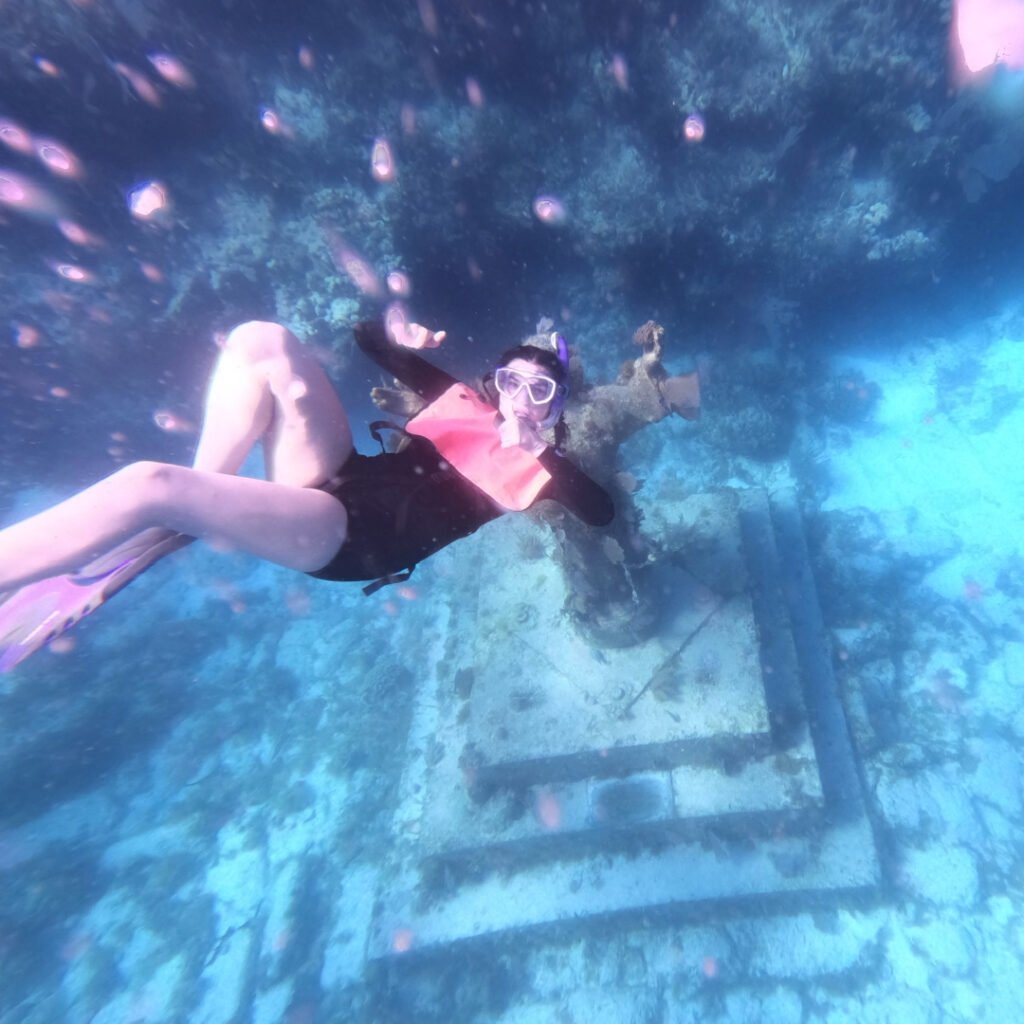In her free time, CEI pupil, Ella Armbruster spends time within the close to the ocean and marine sources she is devoted to guard. Picture by Ella Armbruster.
“After I was youthful, I keep in mind paddling and swimming out on Jupiter Seaside, when impulsively I’d really feel the bizarre, slimy stuff on the bottom. It turned out to be seagrass.”
Ella Armbruster grew up close to the Indian River Lagoon. As soon as uneasy across the ribbon-like plant, she is now on a mission to guard the grass-like aquatic plant.
Ella, a College of Florida pupil finding out environmental science and zoology, is the 2025 Florida Sea Grant Group Engaged Intern. In her position, she will probably be supporting the Eyes on Seagrass program within the Indian River Lagoon area. Her work will embody conducting seagrass surveys, creating instructional sources, and serving to have interaction neighborhood science volunteers.
Eyes on Seagrass is a participatory science program that empowers volunteers to observe and report on seagrass well being. It started in Charlotte Harbor in 2019 and has since expanded statewide. The information collected helps scientists observe modifications in seagrass and make knowledgeable choices about administration and restoration efforts. Sea Grant brokers within the Indian River Lagoon area lately launched this system domestically, and Ella will play a key position in participating new volunteers and supporting this enlargement.
“I grew up subsequent to a drainage canal that emptied into the ocean, and I began studying how extra nitrogen and phosphorus from runoff may cause algal blooms and harm seagrass. That’s the reason I’m actually trying ahead to participating the general public about seagrass well being of their neighborhood,” Ella says. “If I had been making an attempt to study an environmental subject in my very own yard, a science diploma shouldn’t be required for the reply. That’s why speaking science in plain language issues a lot.”
Armbruster utilizing a quadrat to estimate seagrass protection. Picture by Ella Armbuster.
Ella sees herself as a curious learner, actively exploring a variety of educational pursuits and in search of out hands-on experiences. She’s taken pollinator and entomology programs and has a selected curiosity in honey bees. She’s additionally participated in reef surveys and different field-based science initiatives which have deepened her understanding of environmental techniques.
“I did plenty of seashore and science camps rising up. I participated in a biology immersion program the place I studied mangrove survival after they had been buried by sand throughout Hurricane Irma. That have confirmed me what number of various kinds of scientists contribute to understanding complicated ecosystems. It actually opened my eyes to how interconnected science is,” Ella says.
Now primarily based on the Martin County UF/IFAS Extension Workplace, Ella has already had alternatives to work together with different useful resource professionals whose work connects to seagrass well being. This consists of Grasp Gardeners, who promote sustainable landscaping practices and options to fertilizing lawns, which might have a huge impact on water high quality and the well being of close by seagrass meadows.
Later this summer time, she is going to journey to Wilmington, North Carolina, for a four-day in-person discipline expertise with different Sea Grant Group Engaged Interns. The journey will embody visits to state environmental businesses, hands-on neighborhood fieldwork, and scientific shows. It’s designed to reveal interns to various profession pathways in freshwater, coastal, and marine useful resource administration throughout the southeastern U.S.
“I’m trying ahead to studying by means of fieldwork, making connections, and studying methods to discuss science with others, together with family and friends, as I determine what path I would take after undergrad.”
